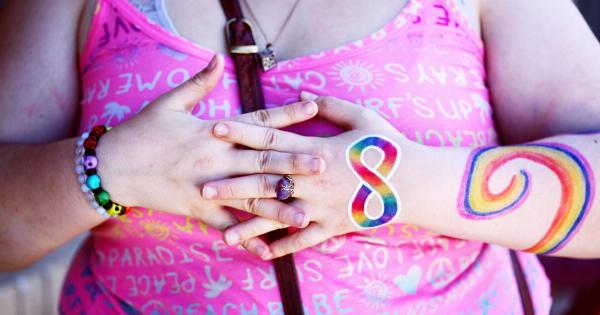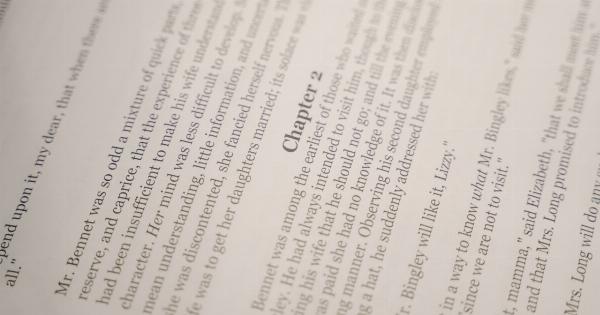Autism, a neurodevelopmental disorder characterized by difficulties in social interaction and communication, is often associated with certain behavioral patterns and preferences.
While research focusing on the link between autism and sexual orientation is limited, there has been anecdotal evidence suggesting a higher prevalence of attraction towards men among autistic males. This article examines the potential correlation between autistic traits and the attraction towards men in men, exploring various factors that might contribute to this phenomenon.
Understanding Autism and Autistic Traits
Autism, also referred to as Autism Spectrum Disorder (ASD), is a complex condition that affects individuals differently.
Some common autistic traits include challenges in social interactions, repetitive or restrictive behaviors, and difficulties in verbal and nonverbal communication. Additionally, many autistic individuals exhibit intense and focused interests or hobbies.
Experiences of Attraction in Autistic Individuals
The experience of attraction is highly personal and varies from individual to individual, regardless of whether they are autistic or not. However, some autistic individuals have shared their unique experiences of attraction towards men.
These experiences may present in different ways and intensities, leading to a diverse range of attractions among autistic males.
The Role of Sensory Processing Differences
Many autistic individuals experience differences in sensory processing, often referred to as sensory sensitivities. This can impact how they perceive and react to various stimuli in their environment.
Some autistic individuals report that they are more comfortable being around and interacting with men due to their sensory preferences. For example, the deep tone of a man’s voice or their physical presence may feel more soothing or less overwhelming than interactions with women.
Reduced Social Expectations and Gender Stereotypes
Autistic individuals often struggle with navigating social expectations and conforming to society’s gender norms and stereotypes.
This struggle can lead to a sense of freedom and acceptance in interactions with individuals who may be less judgmental or demanding of conformity. Men, especially those who exhibit empathy, patience, and less emphasis on societal constructs of masculinity, may provide a safe and accepting environment for autistic males to explore and acknowledge their attractions.
Shared Interests and Specialized Knowledge
A common trait among many autistic individuals is an intense focus on specific interests, which can lead to the acquisition of specialized knowledge in those areas.
This specialized knowledge might overlap with fields of interest that are traditionally associated with men, such as technology, science, or gaming. Autistic individuals with these shared interests may naturally gravitate towards interactions and relationships with men, as it provides an opportunity for deeper connection and mutual understanding.
Differences in Communication Styles
Autistic individuals often navigate nonverbal communication challenges, making it difficult for them to interpret subtle cues and gestures. Men, on average, tend to exhibit more straightforward and direct communication styles compared to women.
This directness might be easier for autistic individuals to understand and engage with, leading to an increased attraction towards men.
Exploring the Spectrum of Gender and Sexuality
The understanding of gender and sexuality has evolved significantly in recent years, moving beyond the binary concept of just male and female.
Autistic individuals, who often embrace and appreciate diversity, may be more open to exploring non-traditional identities and attractions. The fluidity and broad spectrum of gender and sexuality might resonate more with autistic individuals, leading to attractions that transcend conventional norms.
Societal Preconceptions and Misunderstandings
Society’s misconceptions and stereotypes can lead to misunderstandings and stigmatization of autistic individuals. This, in turn, can create barriers in forming connections and relationships.
Some autistic males may find it more comforting and accepting to build relationships with men who may share similar experiences and, to some extent, also face societal prejudices.
Considerations for Support and Understanding
Supporting autistic individuals in understanding and navigating their attractions is crucial. Providing an inclusive and non-judgmental environment where individuals can explore and express themselves freely is essential.
This support can enable autistic males to establish healthy relationships, fostering positive self-acceptance and reducing isolation.
Conclusion
While the connection between autistic traits and attraction towards men in men is a complex and individual experience, various factors may contribute to this phenomenon.
From sensory preferences and shared interests to reduced social expectations and diverse understandings of gender and sexuality, the autistic experience and its impact on attraction are worthy of further exploration and understanding.






























